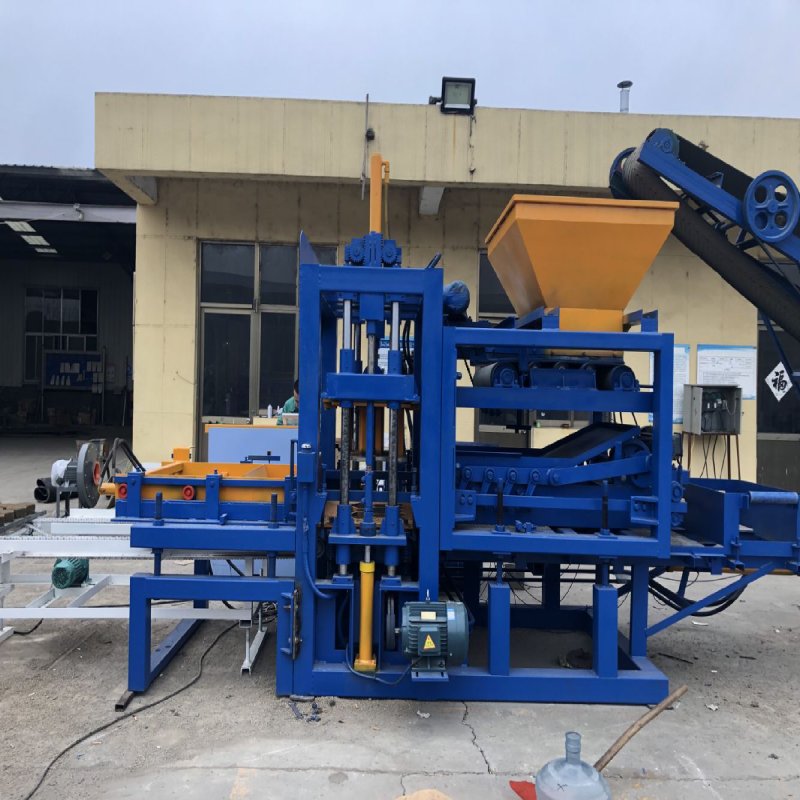
Image source:Aiwei block machine
Introduction
The construction industry plays a pivotal role in the economic development of any nation, and brick making machines are an integral part of this sector. These machines have revolutionized brick production, enabling faster and more efficient manufacturing processes. China has emerged as a global leader in the production and export of brick making machines, and one significant factor contributing to this success is the role of government incentives. In this article, we will explore the various government incentives offered in China to promote the manufacturing and use of brick making machines and analyze their impact on the industry.
Government Support for Research and Development
The Chinese government recognizes the importance of research and development (R&D) in driving innovation and technological advancements. To foster the growth of the brick making machine industry, the government provides substantial financial support for R&D activities. This support encourages manufacturers to invest in cutting-edge technologies, improve machine efficiency, and develop environmentally friendly brick making solutions.
Financial grants, tax incentives, and subsidies are available to both public and private institutions engaged in R&D for brick making machines. These incentives not only reduce the financial burden on manufacturers but also stimulate innovation, leading to the development of superior and more competitive machines.
Export Incentives
China’s government has implemented various export incentives to promote the global marketability of Chinese brick making machines. These incentives include tax rebates, export credits, and financial assistance for marketing and promotional activities. By reducing export costs and providing financial assistance, the government enables Chinese manufacturers to offer competitive prices in the international market, thereby attracting more customers and increasing export volumes.
Additionally, the Chinese government actively participates in international trade fairs and exhibitions, where it showcases the latest advancements in brick making machines. By providing a platform for Chinese manufacturers to interact with potential buyers from around the world, these events facilitate business partnerships and boost exports.
Subsidized Loans and Financing Programs
Access to affordable capital is crucial for manufacturers to invest in new technologies and expand their production capabilities. The Chinese government understands this and has established subsidized loan programs specifically tailored for the brick making machine industry. These programs provide manufacturers with low-interest loans, preferential repayment terms, and flexible financing options, enabling them to acquire machinery, upgrade facilities, and expand their operations.
Moreover, financial institutions in China offer specialized financing schemes for small and medium-sized enterprises (SMEs) involved in brick making machine manufacturing. These programs ease the financial constraints faced by SMEs and foster their growth, contributing to the overall development of the industry.
Training and Skill Development Programs
To enhance the competitiveness of Chinese brick making machine manufacturers, the government has placed significant emphasis on training and skill development programs. These initiatives aim to improve the technical expertise of industry professionals, enhance manufacturing processes, and promote the adoption of advanced production techniques.
Government-funded training centers and institutes collaborate with industry experts to provide specialized training courses and workshops. These programs cover a wide range of topics, including machine operation, maintenance, troubleshooting, and safety protocols. By equipping manufacturers and workers with the necessary skills, the government ensures a high standard of production and strengthens the reputation of Chinese brick making machines in the global market.
Environmental Initiatives and Incentives
In recent years, environmental sustainability has gained significant importance worldwide. The Chinese government has implemented stringent regulations and standards to reduce pollution and promote eco-friendly practices in the brick making industry. To support these initiatives, various incentives are offered to manufacturers who adopt environmentally friendly technologies and processes.
Incentives such as tax exemptions, subsidies for energy-efficient machinery, and grants for implementing pollution control measures motivate manufacturers to invest in green technologies. This not only reduces the environmental impact of brick production but also enhances the market appeal of Chinese brick making machines in countries with strict environmental regulations.
Conclusion
The Chinese government’s proactive approach in promoting the brick making machine industry through a range of incentives has played a vital role in China’s dominance in this sector. By providing financial support for research and development, export incentives, subsidized loans, training programs, and environmental initiatives, the government has created a favorable environment for manufacturers. These incentives have not only stimulated innovation and technological advancements but also boosted exports and improved the competitiveness of Chinese brick making machines in the global market.
As the construction industry continues to grow, the demand for brick making machines is expected to rise. It is essential for governments around the world to recognize the benefits of providing incentives and support for the manufacturing and use of these machines. By emulating China’s successful model, countries can foster their own brick making machine industries, driving economic growth, promoting technological advancements, and contributing to a sustainable future.
